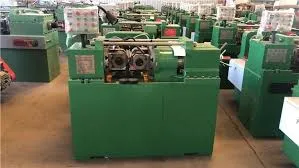
-
 Afrikaans
Afrikaans -
 Albanian
Albanian -
 Amharic
Amharic -
 Arabic
Arabic -
 Armenian
Armenian -
 Azerbaijani
Azerbaijani -
 Basque
Basque -
 Belarusian
Belarusian -
 Bengali
Bengali -
 Bosnian
Bosnian -
 Bulgarian
Bulgarian -
 Catalan
Catalan -
 Cebuano
Cebuano -
 Corsican
Corsican -
 Croatian
Croatian -
 Czech
Czech -
 Danish
Danish -
 Dutch
Dutch -
 English
English -
 Esperanto
Esperanto -
 Estonian
Estonian -
 Finnish
Finnish -
 French
French -
 Frisian
Frisian -
 Galician
Galician -
 Georgian
Georgian -
 German
German -
 Greek
Greek -
 Gujarati
Gujarati -
 Haitian Creole
Haitian Creole -
 hausa
hausa -
 hawaiian
hawaiian -
 Hebrew
Hebrew -
 Hindi
Hindi -
 Miao
Miao -
 Hungarian
Hungarian -
 Icelandic
Icelandic -
 igbo
igbo -
 Indonesian
Indonesian -
 irish
irish -
 Italian
Italian -
 Japanese
Japanese -
 Javanese
Javanese -
 Kannada
Kannada -
 kazakh
kazakh -
 Khmer
Khmer -
 Rwandese
Rwandese -
 Korean
Korean -
 Kurdish
Kurdish -
 Kyrgyz
Kyrgyz -
 Lao
Lao -
 Latin
Latin -
 Latvian
Latvian -
 Lithuanian
Lithuanian -
 Luxembourgish
Luxembourgish -
 Macedonian
Macedonian -
 Malgashi
Malgashi -
 Malay
Malay -
 Malayalam
Malayalam -
 Maltese
Maltese -
 Maori
Maori -
 Marathi
Marathi -
 Mongolian
Mongolian -
 Myanmar
Myanmar -
 Nepali
Nepali -
 Norwegian
Norwegian -
 Norwegian
Norwegian -
 Occitan
Occitan -
 Pashto
Pashto -
 Persian
Persian -
 Polish
Polish -
 Portuguese
Portuguese -
 Punjabi
Punjabi -
 Romanian
Romanian -
 Russian
Russian -
 Samoan
Samoan -
 Scottish Gaelic
Scottish Gaelic -
 Serbian
Serbian -
 Sesotho
Sesotho -
 Shona
Shona -
 Sindhi
Sindhi -
 Sinhala
Sinhala -
 Slovak
Slovak -
 Slovenian
Slovenian -
 Somali
Somali -
 Spanish
Spanish -
 Sundanese
Sundanese -
 Swahili
Swahili -
 Swedish
Swedish -
 Tagalog
Tagalog -
 Tajik
Tajik -
 Tamil
Tamil -
 Tatar
Tatar -
 Telugu
Telugu -
 Thai
Thai -
 Turkish
Turkish -
 Turkmen
Turkmen -
 Ukrainian
Ukrainian -
 Urdu
Urdu -
 Uighur
Uighur -
 Uzbek
Uzbek -
 Vietnamese
Vietnamese -
 Welsh
Welsh -
 Bantu
Bantu -
 Yiddish
Yiddish -
 Yoruba
Yoruba -
 Zulu
Zulu
Working Principles of Thread Rolling Machines in Manufacturing Facilities
The Role of Thread Rolling Machines in Manufacturing
In the manufacturing industry, efficiency and precision are paramount. One of the critical processes that contribute to these goals is thread rolling, a method commonly employed to create threads on various materials. Thread rolling machines have become indispensable in factories that require high-speed, accurate production of threaded components.
Thread rolling is a cold forming process that utilizes cylindrical dies to create external threads on a workpiece. Unlike traditional machining methods that cut away material to form threads, thread rolling displaces material, which results in stronger threads due to improved grain structure. This technique significantly enhances the mechanical properties of the finished product, reducing the likelihood of failure in critical applications.
Factories that utilize thread rolling machines benefit from increased production rates and reduced material waste. These machines can produce thousands of threaded components per hour, far surpassing traditional threading methods. This high throughput is especially crucial in industries such as automotive, aerospace, and construction, where timely delivery and reliability are vital.
thread rolling machine working factories

The versatility of thread rolling machines is another advantage. They can accommodate various sizes and types of rods and are adaptable for creating different thread profiles. This flexibility allows manufacturers to respond quickly to changing market demands and customize products to meet specific customer needs.
Moreover, the automation of thread rolling processes has revolutionized manufacturing. Advanced computer numerical control (CNC) technology allows for precise programming of rolling machines, ensuring consistent quality and reducing the potential for human error. This automation not only streamlines operations but also minimizes labor costs, making factories more competitive.
In recent years, there has been a growing emphasis on sustainability in manufacturing. Thread rolling, being a cold-forming process, typically consumes less energy than traditional machining methods. Additionally, the reduction of material waste during production aligns with the broader goals of minimizing environmental impact.
In conclusion, thread rolling machines play a vital role in modern manufacturing, offering advantages in speed, efficiency, and product quality. As factories continue to advance technologically, the importance of these machines in producing high-quality threaded components will only increase. Embracing thread rolling technology is essential for manufacturers seeking to maintain a competitive edge in an ever-evolving market.
